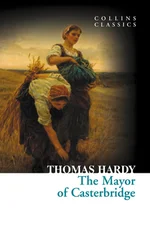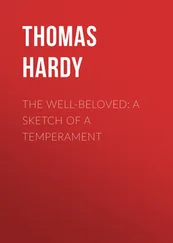Thomas Hardy - Wessex Tales
Здесь есть возможность читать онлайн «Thomas Hardy - Wessex Tales» — ознакомительный отрывок электронной книги совершенно бесплатно, а после прочтения отрывка купить полную версию. В некоторых случаях можно слушать аудио, скачать через торрент в формате fb2 и присутствует краткое содержание. Жанр: foreign_antique, foreign_prose, на английском языке. Описание произведения, (предисловие) а так же отзывы посетителей доступны на портале библиотеки ЛибКат.
- Название:Wessex Tales
- Автор:
- Жанр:
- Год:неизвестен
- ISBN:нет данных
- Рейтинг книги:5 / 5. Голосов: 1
-
Избранное:Добавить в избранное
- Отзывы:
-
Ваша оценка:
- 100
- 1
- 2
- 3
- 4
- 5
Wessex Tales: краткое содержание, описание и аннотация
Предлагаем к чтению аннотацию, описание, краткое содержание или предисловие (зависит от того, что написал сам автор книги «Wessex Tales»). Если вы не нашли необходимую информацию о книге — напишите в комментариях, мы постараемся отыскать её.
Wessex Tales — читать онлайн ознакомительный отрывок
Ниже представлен текст книги, разбитый по страницам. Система сохранения места последней прочитанной страницы, позволяет с удобством читать онлайн бесплатно книгу «Wessex Tales», без необходимости каждый раз заново искать на чём Вы остановились. Поставьте закладку, и сможете в любой момент перейти на страницу, на которой закончили чтение.
Интервал:
Закладка:
But Elijah and the boy, in the excitement of their position, quite forgot the injunction. Moreover, Oliver Giles, a man of seventeen, one of the dancers, who was enamoured of his partner, a fair girl of thirty-three rolling years, had recklessly handed a new crown-piece to the musicians, as a bribe to keep going as long as they had muscle and wind. Mrs. Fennel, seeing the steam begin to generate on the countenances of her guests, crossed over and touched the fiddler’s elbow and put her hand on the serpent’s mouth. But they took no notice, and fearing she might lose her character of genial hostess if she were to interfere too markedly, she retired and sat down helpless. And so the dance whizzed on with cumulative fury, the performers moving in their planet-like courses, direct and retrograde, from apogee to perigee, till the hand of the well-kicked clock at the bottom of the room had travelled over the circumference of an hour.
While these cheerful events were in course of enactment within Fennel’s pastoral dwelling, an incident having considerable bearing on the party had occurred in the gloomy night without. Mrs. Fennel’s concern about the growing fierceness of the dance corresponded in point of time with the ascent of a human figure to the solitary hill of Higher Crowstairs from the direction of the distant town. This personage strode on through the rain without a pause, following the little-worn path which, further on in its course, skirted the shepherd’s cottage.
It was nearly the time of full moon, and on this account, though the sky was lined with a uniform sheet of dripping cloud, ordinary objects out of doors were readily visible. The sad wan light revealed the lonely pedestrian to be a man of supple frame; his gait suggested that he had somewhat passed the period of perfect and instinctive agility, though not so far as to be otherwise than rapid of motion when occasion required. At a rough guess, he might have been about forty years of age. He appeared tall, but a recruiting sergeant, or other person accustomed to the judging of men’s heights by the eye, would have discerned that this was chiefly owing to his gauntness, and that he was not more than five-feet-eight or nine.
Notwithstanding the regularity of his tread, there was caution in it, as in that of one who mentally feels his way; and despite the fact that it was not a black coat nor a dark garment of any sort that he wore, there was something about him which suggested that he naturally belonged to the black-coated tribes of men. His clothes were of fustian, and his boots hobnailed, yet in his progress he showed not the mud-accustomed bearing of hobnailed and fustianed peasantry.
By the time that he had arrived abreast of the shepherd’s premises the rain came down, or rather came along, with yet more determined violence. The outskirts of the little settlement partially broke the force of wind and rain, and this induced him to stand still. The most salient of the shepherd’s domestic erections was an empty sty at the forward corner of his hedgeless garden, for in these latitudes the principle of masking the homelier features of your establishment by a conventional frontage was unknown. The traveller’s eye was attracted to this small building by the pallid shine of the wet slates that covered it. He turned aside, and, finding it empty, stood under the pent-roof for shelter.
While he stood, the boom of the serpent within the adjacent house, and the lesser strains of the fiddler, reached the spot as an accompaniment to the surging hiss of the flying rain on the sod, its louder beating on the cabbage-leaves of the garden, on the eight or ten beehives just discernible by the path, and its dripping from the eaves into a row of buckets and pans that had been placed under the walls of the cottage. For at Higher Crowstairs, as at all such elevated domiciles, the grand difficulty of housekeeping was an insufficiency of water; and a casual rainfall was utilized by turning out, as catchers, every utensil that the house contained. Some queer stories might be told of the contrivances for economy in suds and dish-waters that are absolutely necessitated in upland habitations during the droughts of summer. But at this season there were no such exigencies; a mere acceptance of what the skies bestowed was sufficient for an abundant store.
At last the notes of the serpent ceased and the house was silent. This cessation of activity aroused the solitary pedestrian from the reverie into which he had lapsed, and, emerging from the shed, with an apparently new intention, he walked up the path to the house-door. Arrived here, his first act was to kneel down on a large stone beside the row of vessels, and to drink a copious draught from one of them. Having quenched his thirst he rose and lifted his hand to knock, but paused with his eye upon the panel. Since the dark surface of the wood revealed absolutely nothing, it was evident that he must be mentally looking through the door, as if he wished to measure thereby all the possibilities that a house of this sort might include, and how they might bear upon the question of his entry.
In his indecision he turned and surveyed the scene around. Not a soul was anywhere visible. The garden-path stretched downward from his feet, gleaming like the track of a snail; the roof of the little well (mostly dry), the well-cover, the top rail of the garden-gate, were varnished with the same dull liquid glaze; while, far away in the vale, a faint whiteness of more than usual extent showed that the rivers were high in the meads. Beyond all this winked a few bleared lamplights through the beating drops – lights that denoted the situation of the county-town from which he had appeared to come. The absence of all notes of life in that direction seemed to clinch his intentions, and he knocked at the door.
Within, a desultory chat had taken the place of movement and musical sound. The hedge-carpenter was suggesting a song to the company, which nobody just then was inclined to undertake, so that the knock afforded a not unwelcome diversion.
‘Walk in!’ said the shepherd promptly.
The latch clicked upward, and out of the night our pedestrian appeared upon the door-mat. The shepherd arose, snuffed two of the nearest candles, and turned to look at him.
Their light disclosed that the stranger was dark in complexion and not unprepossessing as to feature. His hat, which for a moment he did not remove, hung low over his eyes, without concealing that they were large, open, and determined, moving with a flash rather than a glance round the room. He seemed pleased with his survey, and, baring his shaggy head, said, in a rich deep voice, ‘The rain is so heavy, friends, that I ask leave to come in and rest awhile.’
‘To be sure, stranger,’ said the shepherd. ‘And faith, you’ve been lucky in choosing your time, for we are having a bit of a fling for a glad cause – though, to be sure, a man could hardly wish that glad cause to happen more than once a year.’
‘Nor less,’ spoke up a woman. ‘For ’tis best to get your family over and done with, as soon as you can, so as to be all the earlier out of the fag o’t.’
‘And what may be this glad cause?’ asked the stranger.
‘A birth and christening,’ said the shepherd.
The stranger hoped his host might not be made unhappy either by too many or too few of such episodes, and being invited by a gesture to a pull at the mug, he readily acquiesced. His manner, which, before entering, had been so dubious, was now altogether that of a careless and candid man.
‘Late to be traipsing athwart this coomb – hey?’ said the engaged man of fifty.
‘Late it is, master, as you say. – I’ll take a seat in the chimney-corner, if you have nothing to urge against it, ma’am; for I am a little moist on the side that was next the rain.’
Читать дальшеИнтервал:
Закладка:
Похожие книги на «Wessex Tales»
Представляем Вашему вниманию похожие книги на «Wessex Tales» списком для выбора. Мы отобрали схожую по названию и смыслу литературу в надежде предоставить читателям больше вариантов отыскать новые, интересные, ещё непрочитанные произведения.
Обсуждение, отзывы о книге «Wessex Tales» и просто собственные мнения читателей. Оставьте ваши комментарии, напишите, что Вы думаете о произведении, его смысле или главных героях. Укажите что конкретно понравилось, а что нет, и почему Вы так считаете.












